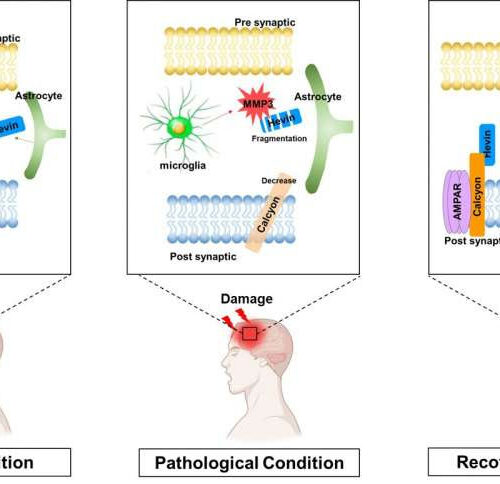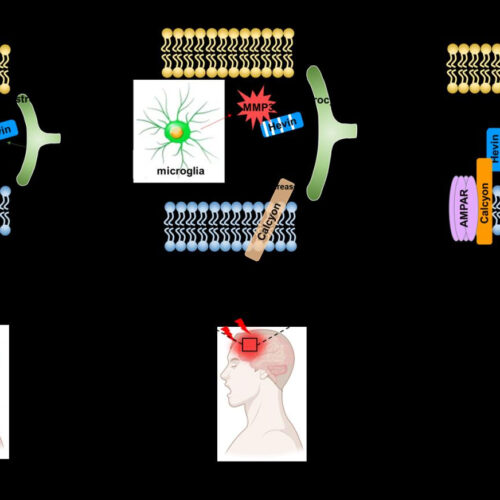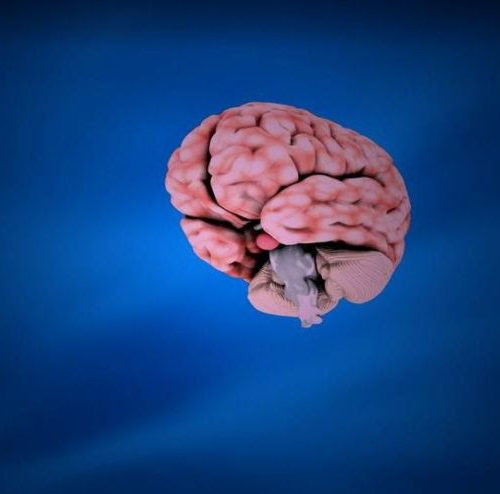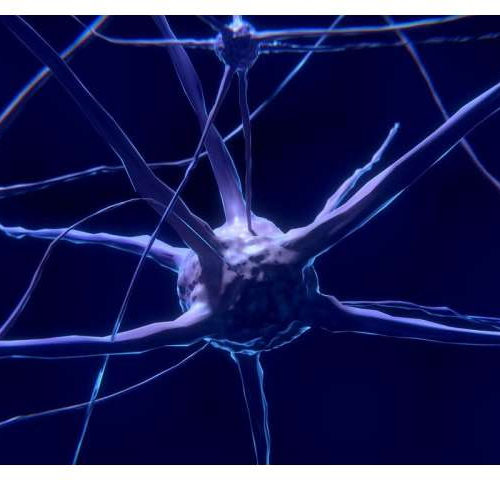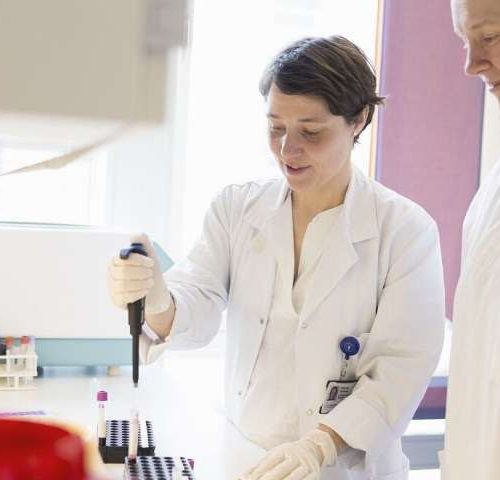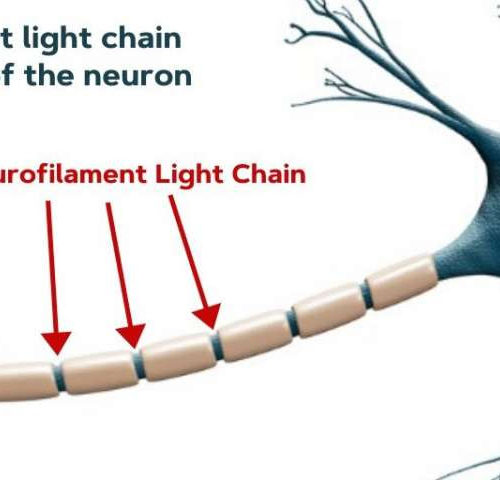ELIFE Hormones released after a brain injury contributes to movement problems on the left and right sides of the body shows a study in rats published today in eLife. The results also suggest that hormone-blocking treatments may help counteract these effects, a finding that has implications for treating people with traumatic brain injuries or stroke....
Tag: <span>Brain injury</span>
Novel interactions between proteins that help in recovering from brain injury
by National Research Council of Science & Technology Mechanism of action of inflammatory activation enzymes of Hevin-calcyon interaction. Credit: Korea Institute of Science and Technology (KIST) Patients with brain injury (caused by stroke or trauma) primarily rely on rehabilitation therapy for recovery, as there are no other known effective treatment methods. The rate of recovery from brain...
Novel interactions between proteins that help in recovering from brain injury
NATIONAL RESEARCH COUNCIL OF SCIENCE & TECHNOLOGY IMAGE: MECHANISM OF ACTION OF INFLAMMATORY ACTIVATION ENZYMES OF HEVIN-CALCYON INTERACTION CREDIT: KOREA INSTITUTE OF SCIENCE AND TECHNOLOGY(KIST) Patients with brain injury (caused by stroke or trauma) primarily rely on rehabilitation therapy for recovery, as there are no other known effective treatment methods. The rate of recovery from brain injury...
Preventing seizures after brain injury could stave off dementia
“Traumatic brain injury is a major risk factor for dementia, but the reason this is the case has remained mysterious,” said Ted Allison, co-author and professor in the Department of Biological Sciences in the Faculty of Science. “Through this research, we have discovered one important way they are linked—namely, post-injury seizures.” Image credit: pixy.org, CC0 Public Domain “There is currently...
Bedside EEG test can aid prognosis in unresponsive brain injury patients
by Beck Lockwood, University of Birmingham Credit: Pixabay/CC0 Public Domain Assessing the ability of unresponsive patients with severe brain injury to understand what is being said to them could yield important insights into how they might recover, according to new research. A team at the University of Birmingham has shown that responses to speech can be measured...
Brain imaging predicts PTSD after brain injury
ELSEVIER Philadelphia, December 29, 2020 – Posttraumatic stress disorder (PTSD) is a complex psychiatric disorder brought on by physical and/or psychological trauma. How its symptoms, including anxiety, depression and cognitive disturbances arise remains incompletely understood and unpredictable. Treatments and outcomes could potentially be improved if doctors could better predict who would develop PTSD. Now, researchers using...
Repeated small blasts put military, law enforcement at risk for brain injury
UNIVERSITY OF VIRGINIA HEALTH SYSTEM IMAGE: UVA SCHOOL OF MEDICINE RESEARCHER JAMES STONE, MD, PHD, IS HELPING DEVELOP A MODEL PREDICTING HOW REGULAR EXPOSURE TO ARTILLERY BLASTS AFFECTS THE BRAINS OF MILITARY PERSONNEL. Military and law-enforcement personnel repeatedly exposed to low-level blasts have significant brain changes – including an increased level of brain injury and...
Concussions can cause long-term sleep problems
by Norwegian University of Science and Technology A new study shows that people who have had concussions sometimes develop long-term after effects, including sleep disturbances. The findings could also be of use to other patient groups. Every year, thousands of people end up in the emergency room or hospital with minor head injuries, often diagnosed...
Blood-based biomarker can detect, predict severity of traumatic brain injury
by National Institutes of Health A study from the National Institutes of Health confirms that neurofilament light chain as a blood biomarker can detect brain injury and predict recovery in multiple groups, including professional hockey players with acute or chronic concussions and clinic-based patients with mild, moderate, or severe traumatic brain injury. The research was...
Clear signs of brain injury with severe COVID-19
CREDIT: PHOTO BY JOHAN WINGBORG Certain patients who receive hospital care for coronavirus infection (COVID-19) exhibit clinical and neurochemical signs of brain injury, a University of Gothenburg study shows. In even moderate COVID-19 cases, finding and measuring a blood-based biomarker for brain damage proved to be possible. Some people infected with the coronavirus SARS-CoV-2 get...

